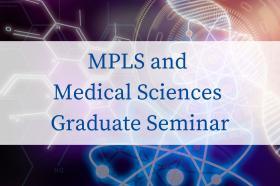
All College members are welcome to come along to this term's MPLS and Medical Sciences Graduate Seminar, where two of LMH's DPhil students will present their research. The event will be followed by drinks in the Monson Room.
Speakers
Mark Macsuka – DPhil Oncology
Beyond One-size-fits-all: The Future of Radionuclide Therapy
Radiopharmaceutical therapies are an emerging class of cancer treatments that use targeted drugs to carry radioactive atoms directly to tumours. Unlike conventional radiation therapy, where dose delivery is tightly planned, these treatments are typically prescribed using fixed injected amounts, even though the radiation absorbed by tumours and healthy organs can vary widely between patients.
In this presentation, I show that this variability is large, clinically meaningful, and poorly captured by standard dosing practices. Using patient imaging data, I demonstrate that the radiation actually delivered to tumours and organs differs by orders of magnitude across individuals, and that these differences are associated with treatment response and patient outcomes.
I then develop a simulation framework to explore how treatment could be personalised using patient-specific measurements. These virtual trials suggest that adapting dosing to individual radiation uptake, rather than relying on fixed injected amounts, could improve treatment effectiveness while maintaining safety, and in some cases reduce the number of treatment cycles required.
Priyanshu Raikwar - DPhil Biology
Tracing Ancient Life & Environments Through Today’s Cells
Formation of early life is complex and unknown. We explore how changing conditions on early Earth shaped even the most fundamental forms of life around two billion years ago. To do this, we use today’s ribosome, the cell’s 'protein factory', as a kind of ‘genetic fossil’, allowing us to reconstruct ancient environments and gain insight into how biological complexity emerged.
Ribosomal genes are usually kept as single copies, so when they are duplicated and preserved over evolutionary time, it suggests something unusual is happening. We identify a small number of ribosomal genes that were duplicated and show that these events likely reflect adaptation to something vital: environmental change. In many cases, one gene copy depends on the metal zinc, while the other does not, pointing to fluctuating metal availability as a key selective pressure in early life. Together, these patterns show how shifts in Earth’s chemistry influenced the evolution of even the most basic cellular life, and how modern genomes can be read as records of life’s deep past.